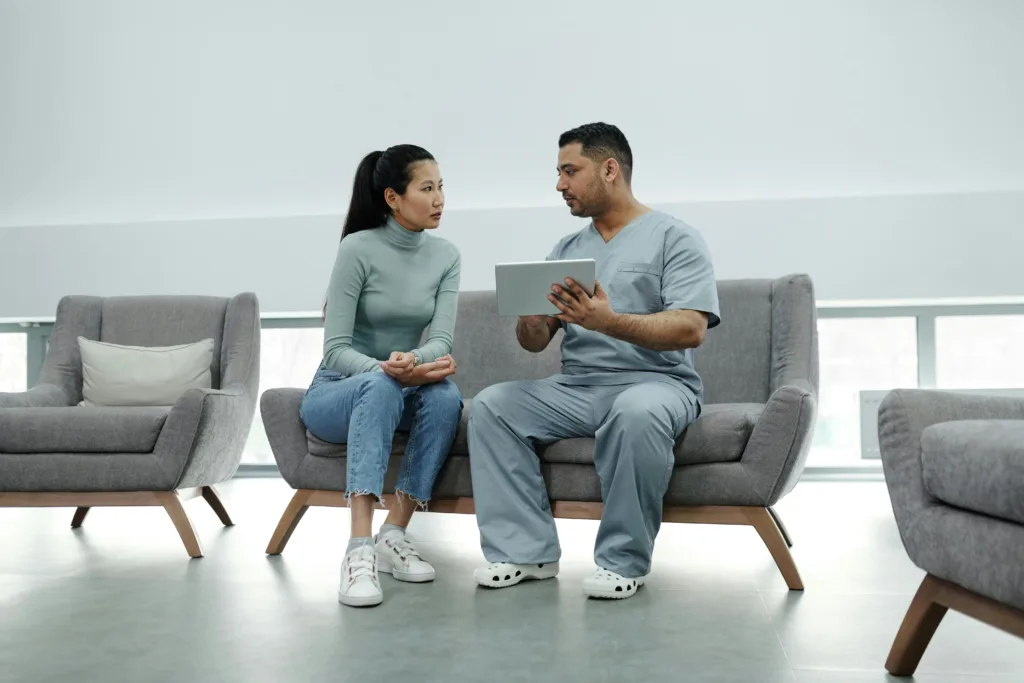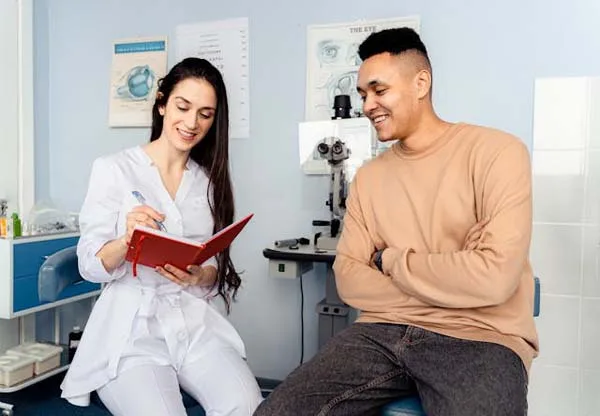Understanding the importance of preventive care is key to staying healthy and avoiding unnecessary bills. Preventive care involves regular health check-ups and screenings that can detect health issues before they become serious problems. By investing in regular health assessments, we take charge of our health and minimize the risk of facing unexpected and potentially high medical bills. Let’s find out how!
Understanding the Importance of Preventive Care
Preventive care encompasses a range of health services, including screenings, check-ups, and patient counseling, to prevent illnesses before they start or progress. These services are crucial for catching health issues in their initial stages when they’re often easier and less expensive to treat.
Alt-tag: Doctor explaining the importance of preventive care to a patient
Despite its proven benefits, a surprising number of people skip their regular check-ups, missing the opportunity to nip potential health problems in the bud. However, by understanding the full scope of preventive care, we can appreciate its role in maintaining our health and securing our financial well-being. So here are five compelling reasons why preventive care is necessary.
Reason 1: Lowering Long-term Healthcare Costs
Investing in regular check-ups can lead to substantial savings on long-term healthcare costs. Preventive care helps to identify health issues early when they are often more manageable and less expensive to treat.
For example, the cost of managing diabetes early through diet and medication is significantly lower than the cost of treating the complications of advanced diabetes, such as kidney failure or heart disease. This preventive approach saves money and improves quality of life.
Reason 2: Reducing the Risk of Serious Health Issues

Regular check-ups play an important role in reducing the risk of developing serious health conditions. By catching problems early, individuals have a better chance of successful treatment, often with less invasive and less costly interventions.
Studies have shown that early detection of conditions like cancer can lead to better outcomes and significantly lower treatment costs. That emphasizes the importance of preventive care in safeguarding our health as well as our wallets.
Also, regular check-ups can help you prevent major stress-related health issues. However, they can’t do this on their own. For instance, if you’re going through a highly stressful time in your life, like relocating to an unfamiliar place, you should try to relieve that stress as much as possible. For instance, one way to stay healthy during relocation is to hire professional movers to handle all the complex logistics. As such, you can focus on eating healthy and exercising to keep your health in check.
Reason 3: Enhancing Productivity and Reducing Absenteeism
Good health is inextricably linked to higher productivity and fewer missed days at work. Preventive care contributes to better overall health, reducing the likelihood of sickness-related absenteeism. That benefits individuals by ensuring they remain productive and financially stable.
On the other hand, it also supports employers by minimizing disruptions and the associated costs.
The economic advantages of reduced absenteeism further underline the value of staying healthy
through regular check-ups.
Reason 4: Benefiting from Insurance Incentives

Many health insurance plans now recognize the value of preventive care and offer incentives for policyholders who engage in regular health check-ups. These incentives can include lower premiums, reduced co-pays, or bonuses for participating in health assessments and screenings.
Such benefits make preventive care an attractive option for those looking to save on healthcare costs while staying healthy. Therefore, you must understand your health insurance plan to maximize these opportunities.
Reason 5: Access to Early Treatment Options
Early detection of health issues through preventive care opens the door to treatment options that may be less invasive, less expensive, and more effective. Innovative treatments for conditions detected early often require shorter recovery times and entail lower overall healthcare expenses. Patient stories abound of early diagnosis with positive outcomes that were less burdensome financially.
Choosing a primary care doctor that’s right for you is an essential step in accessing these benefits. A good primary care physician can guide your preventive care journey. They can offer personalized advice and screenings tailored to your health profile.
Make Your Health a Priority
Understanding the importance of preventive care is crucial. This approach to health management is not just about avoiding diseases. More importantly, it’s about embracing a lifestyle that prioritizes the well-being and financial savings. By incorporating regular check-ups into our lives, we can detect potential health issues early, access cost-effective treatments, and maintain our productivity. So, let’s make preventive care a cornerstone of our healthcare routine, recognizing it as an essential investment in our future.
